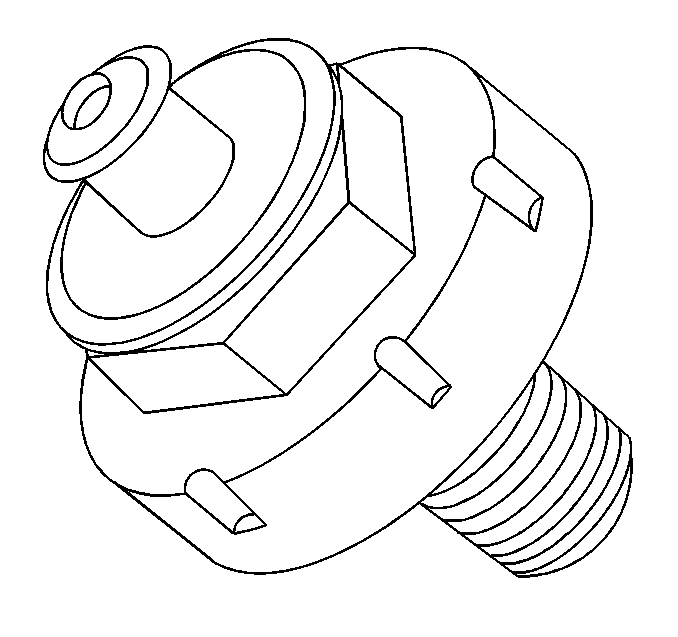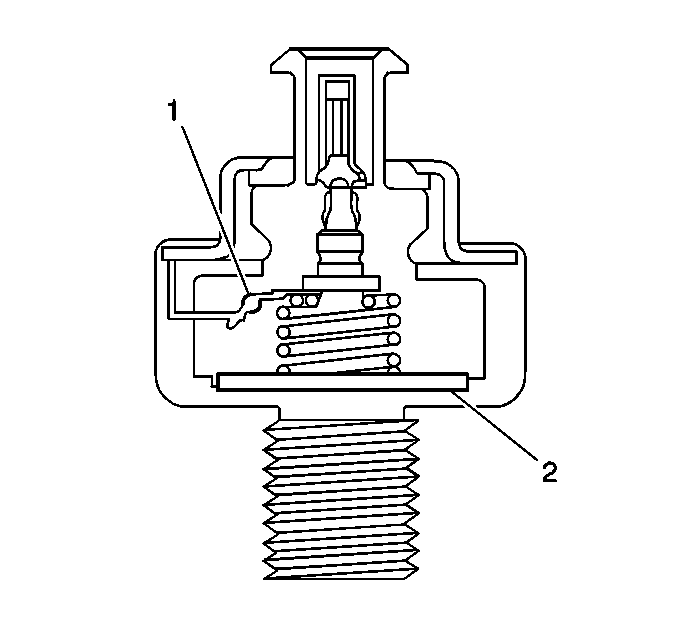Knock Sensor

Varying octane levels in todays gasoline can cause detonation in some engines. Detonation is sometimes called spark knock. Detonation is caused by an uncontrolled explosion (burn) in the combustion chamber. This uncontrolled explosion could produce a flame front opposite that of the normal flame front produced by the spark plug. The rattling sound normally associated with detonation is the result of two or more opposing pressures (flame fronts) colliding within the combustion chamber. Though light detonation is sometimes considered normal, heavy detonation could result in engine damage.
To control spark knock, a Knock Sensor (KS) system is used. This system is designed to retard spark timing up to 20° to reduce spark knock in the engine. This allows the engine to use maximum spark advance to improve driveability and fuel economy.
The Knock system has the following components:
| • | KS module. |
| • | Knock sensor(s) |
The knock sensor system is used to detect engine detonation. The PCM will retard the spark timing based on signals from the KS module. The knock sensor(s) produce an AC voltage which is sent to the KS module. The amount of AC voltage produced by the sensors is determined by the amount of knock. This signal voltage is input to the PCM. The PCM then adjusts the Ignition Control (IC) to reduce spark knocking.
Knock Sensor Cutaway

